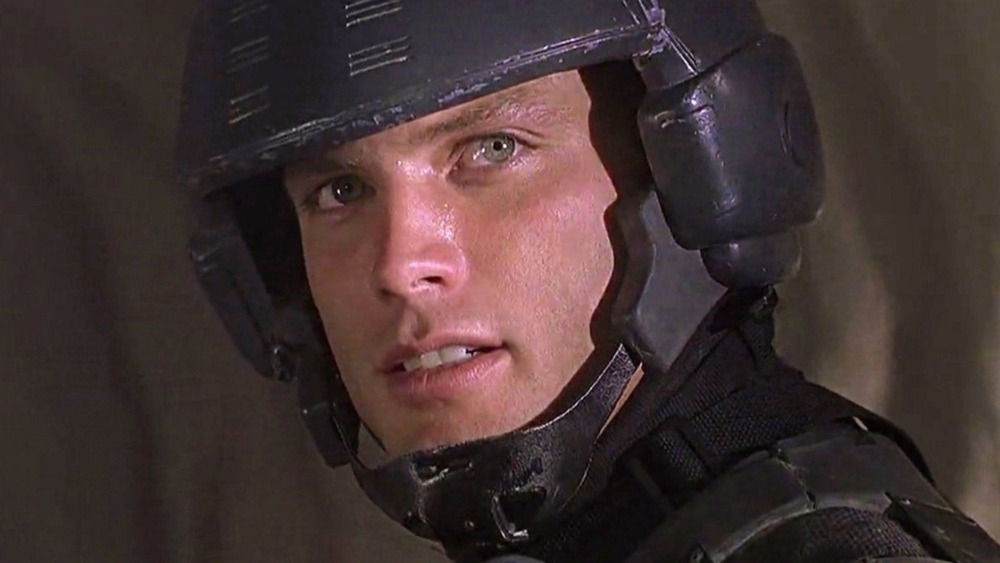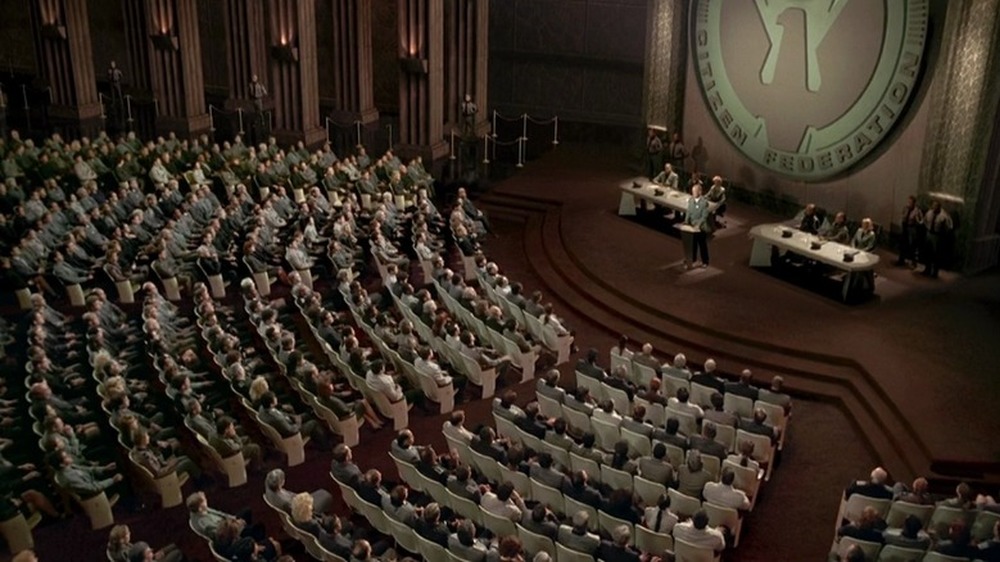The Real Reason The Starship Troopers Director Never Read The Book
Paul Verhoeven is a controversial filmmaker, to say the least. Between the grotesque satirical movie violence of Robocop, the ambiguously self-aware ridiculousness of Showgirls, the thorny debates on sexual violence surrounding Elle, and that moment from Basic Instinct, it's impressive how consistently he's managed to find new ways to shock viewers and spur heated cinematic debates over the years. On paper, that fondness for difficult material could have made him feel right at home in the pages of Robert A. Heinlein's classic hot-button sci-fi novel Starship Troopers. But that's not quite how things panned out.
A highly controversial movie in its own right, Verhoeven's 1997 adaptation of Starship Troopers became notorious for how different it felt from the source material. Critics and audiences alike were confused by Verhoeven's approach, feeling that it was simplistic and childish compared to the seriousness and scope of Heinlein's vision. It took years for people to start coming around to Starship Troopers, which is now a bona-fide cult classic, ironically admired most of all for Verhoeven's unique read on Heinlein's themes. Maybe it wouldn't have taken so long for viewers to understand what Verhoeven was trying to do if they knew the truth: that he hated the book so much he couldn't finish it.
Director Paul Verhoeven couldn't get past the first few chapters of Starship Troopers
The adaptation of Starship Troopers was originally a labor of love from screenwriter Ed Neumeier, a lifelong fan of Heinlein's novel. In a 2012 interview with Empire, director Paul Verhoeven revealed that their writer-director partnership began in unlikely circumstances: he threw away Neumeier and Michael Miner's script for RoboCop after skimming it, only for his wife to pick it back up and insist he could do something interesting with it. Verhoeven and Neumeier's collaboration on Starship Troopers was similarly informed by the director's skepticism. He told Empire he stopped reading the book after two chapters, finding it "boring and depressing," and asked Neumeier to fill him in on the rest. "It is really quite a bad book. I asked Ed Neumeier to tell me the story because I just couldn't read the thing. It's a very right-wing book," Verhoeven said.
There's a reason Verhoeven reacted so negatively to Heinlein's book. Having grown up under the Nazi occupation of the Netherlands (via the Independent), he was less interested in its spectacular displays of patriotism than in picking apart the rotten ideology behind them. Before moving to Hollywood, he made his name in Europe with social and psychological dramas that closely analyzed Dutch society and the legacy of war. Heinlein's Starship Troopers, meanwhile, was a novel widely known for its jingoistic, pro-war, pro-military messages, which have led many critics to describe it as propaganda. Verhoeven quickly decided he had no interest in making a straight adaptation, let alone diving into fan-favorite world-building particulars, such as the famously excised power suits. Instead, per the Empire interview, he chose to design the movie's world as a "fascist utopia," in an effort to show why it was bad.
It's only because of this removed perspective that we got the aggressive, over-the-top, quasi-parodic war movie we got, and in that sense, fans of the franchise arguably ought to thank Verhoeven for never having read the book. But, if his recent comments about the possibility of a remake are any indication (via Rolling Stone), the gap between Verhoeven and viewers who sincerely enjoy the high-octane antics of Starship Troopers might be too big to bridge.

